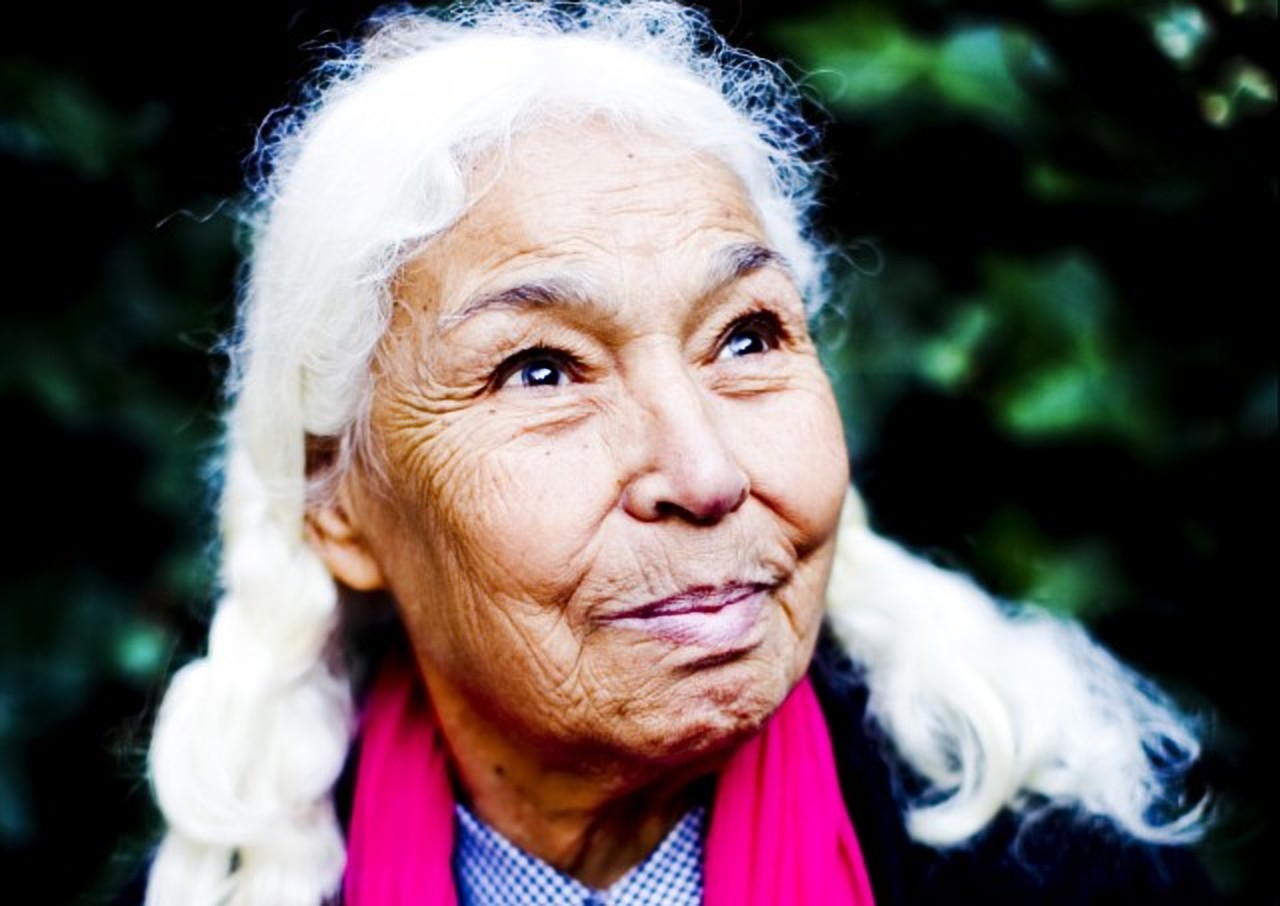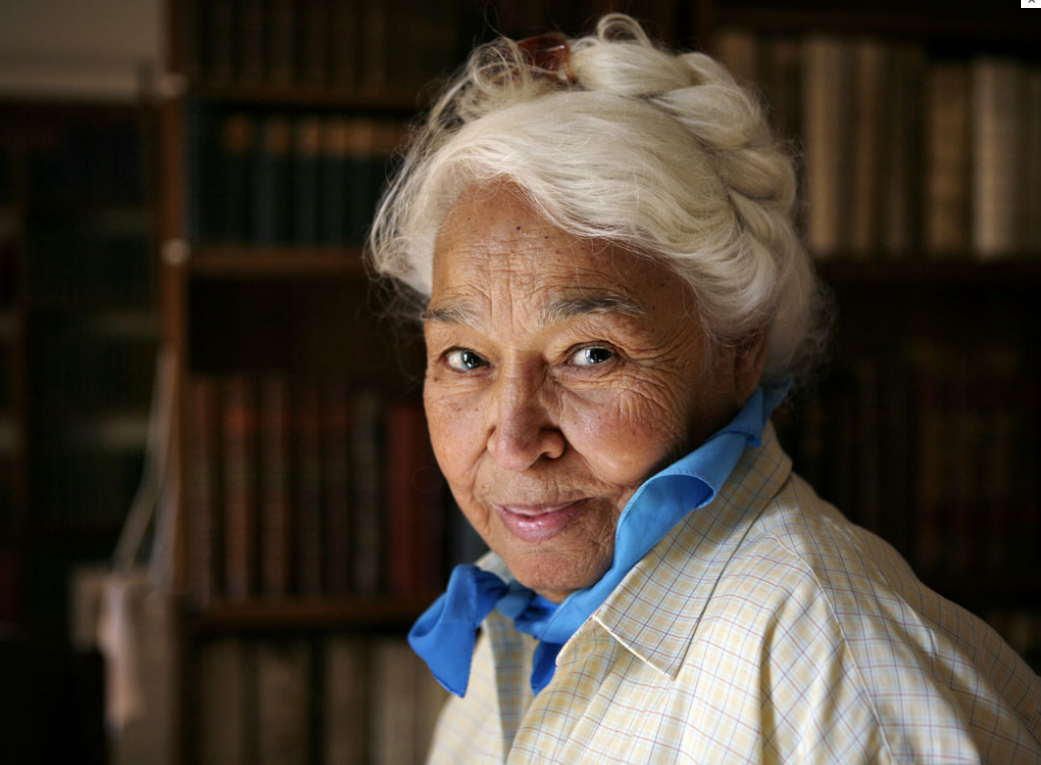Pioneering Egyptian feminist and human rights advocate, prolific author, novelist, physician and psychologist Nawal El Saadawi passed away last Sunday at the age of 89. She leaves behind an incredible feminist legacy.
I can’t remember where I was the first time I saw Nawal El Saadawi on TV. I only remember this strange sense of relief coming over me.
I must have been 10 or 11 years old, but I had already made the discovery. It started with what felt like a constant barrage of personal slights and parental favoritism that always seemed to favor my brother over me. As a child, I had internalized these dynamics as the natural consequences of my own personal inadequacies until that fateful day Saadawi’s voice came blasting from a dusty old TV set.
Her eloquence and witticisms didn’t just put my feelings into words, they also gave me permission to be angry, to rage against the constructs that seek to put me and my kind down. That was the first of many lessons I learned from Nawal.
Her death, which coincided with Egyptian Mother’s Day, comes at a time when Egyptian women are facing some of the greatest threats to their hard-won liberties and civil rights.
In the month prior to her death, one of the accused gang rapists in the Fairmont case was released on bail and a woman plummeted to her death after her landlord found out she had received a male visitor in her own home. A day after her death, the victim of a mass sexual assault in Meet Ghamr took to social media to announce that the men involved in the incident, which was caught on camera, were acquitted by an Egyptian court.
Even more troubling is the hair-raising synchronicity of it all. In what appears to be a concerted effort to strip women of their dignity and humanity, the Egyptian Parliament is currently discussing a disastrous bill submitted by the government that seriously undermines women’s agency. If passed in its current form, the law would essentially institute male guardianship in Egypt, prohibiting women from contracting their own marriages or traveling without the consent of their male next of kin.
The bill also prohibits women from issuing birth certificates or passports for their children and enrolling them in schools.
This also comes amid an unprecedented crackdown on women, their sexual freedoms and bodily autonomy, which saw the state arrest over nine women TikTokers—including a then underage rape victim—for “inciting debauchery and violating Egyptian family values” with their social media content.
This is what makes Saadawi’s loss, at this critical juncture in Egyptian women’s history, particularly tragic. It is yet another reminder that the few freedoms we take for granted could be taken from us and of the magnitude of the work ahead of us and the tremendous courage it takes to achieve gender equality in Egypt.
Her death robs Egyptian feminism of one of its elemental forces at a time when it desperately needs reinforcements. Falling to its lowest ebb in recent years, Egyptian feminism has been defanged, lacking intersectionality, leadership, direction and presence on the ground.
This toothless digital activism, while well-intentioned, can’t keep Saadawi’s legacy or that of her generation alive. Its messages are watered down to coddle our oppressors; it lacks the intellectual authority, moral courage and the outrageous, thought-provoking, unapologetic discourse that ruffles feathers and pushes the national conversation forward.
Righteous indignation is the most powerful force on Earth. It can change societies and reform laws. This is what women and girls in Egypt and around the world have lost: her indefatigable fighting spirit, which acknowledged and affirmed our anger and frustration, but never soothed them lest we fall into apathy and complacency. She departed this world, just as so many of us were ready to throw in the towel, pull up stakes and move to greener pastures.
As we say goodbye to the godmother of Egyptian feminism, it is important to remember those aspects of her activism that defined and shaped our movement throughout our history as women in this country. To honor her is to value our sacrifices, our traumas and our lived experiences and the rage that arises from them; it is to hold on to our angry words, and not engage in semantic acrobatics or censor ourselves for the comfort of others, no matter the consequences.
The opinions and ideas expressed in this article are the author’s and do not necessarily reflect the views of Egyptian Streets’ editorial team. To submit an opinion article, please email [email protected].








Comments (4)
[…] Nawal El Saadawi Taught Me the Value of Rage […]
[…] Nawal El Saadawi Taught Me the Value of Rage […]